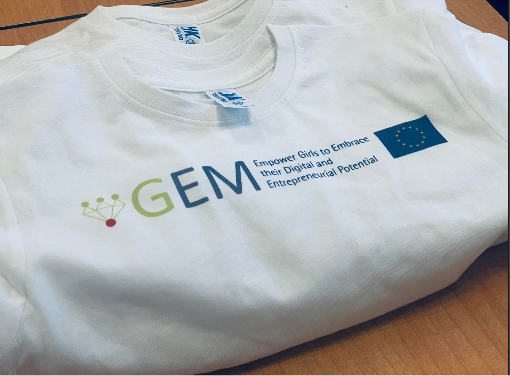Organized by the University of Malta
“It was fun and I was able to use my head and think about different methods”
“I would encourage other girls to attend because it was super fun for me and I’m sure they will enjoy it”.
“ I would because it’s a very fun summer camp and you will learn a lot.”
These were some of the comments written by the participants at the end of an online summer camp for girls held on the 13th, 15th and 17th September. A group of 35 Maltese 12-year-old girls participated in the online summer camp as part of the GEM project. GEM (Empower Girls to Embrace their Digital and Entrepreneurial potential) is an EU funded project aiming to empower girls to embrace their scientific, digital and entrepreneurial potential. The University of Malta is one of 11 European Universities participating in the project.

The girls participated in workshops led by females working in a STEM area. During the workshops these guests spoke about themselves, their work, their lives and then invited the participants to work on a task in a small group led by a female mentor.
In one of the sessions the students used magnets to make a list of magnetic and non-magnetic materials in their homes, explored magnetic levitation and observed magnetic fields using a small kit that was provided to each student as part of the project. This was part of a workshop led by a researcher who is working on the application of electromagnetic fields in medical diagnosis and treatment.
In another session the students worked on case studies of patients arriving at the Emergency Department of the Hospital with suspected bone fractures. The participants compared their X-ray images with images of healthy bones to identify the bone that has been fractured. A radiographer introduced herself, her work in hospital and how this has been impacted by the COVID-19 pandemic.
A special session was dedicated to students’ digital competence. Participants worked on coding tasks that became progressively more complex intended to develop students’ computational thinking skills. The students worked from one level to the next and some even managed to arrive at the most challenging level in the short time available. A female academic from the department of ICT briefly introduced herself and her work in Artificial Intelligence and Virtual Reality.
Entrepreneurship was tackled during an interactive session in which a variety of topics were discussed such as the characteristics of an entrepreneur and an innovator.
One of the days was led by science communicators from the ESPLORA science centre. They organised two workshops that helped students learn about science, STEM careers and stereotypes and a show that enabled students to learn about the human body.
The students eagerly participated in all the activities and the adults present were impressed by what they managed to achieve in the discussions and hands-on workshops. At the end of the event happy faces waved goodbye to their old and new friends.
